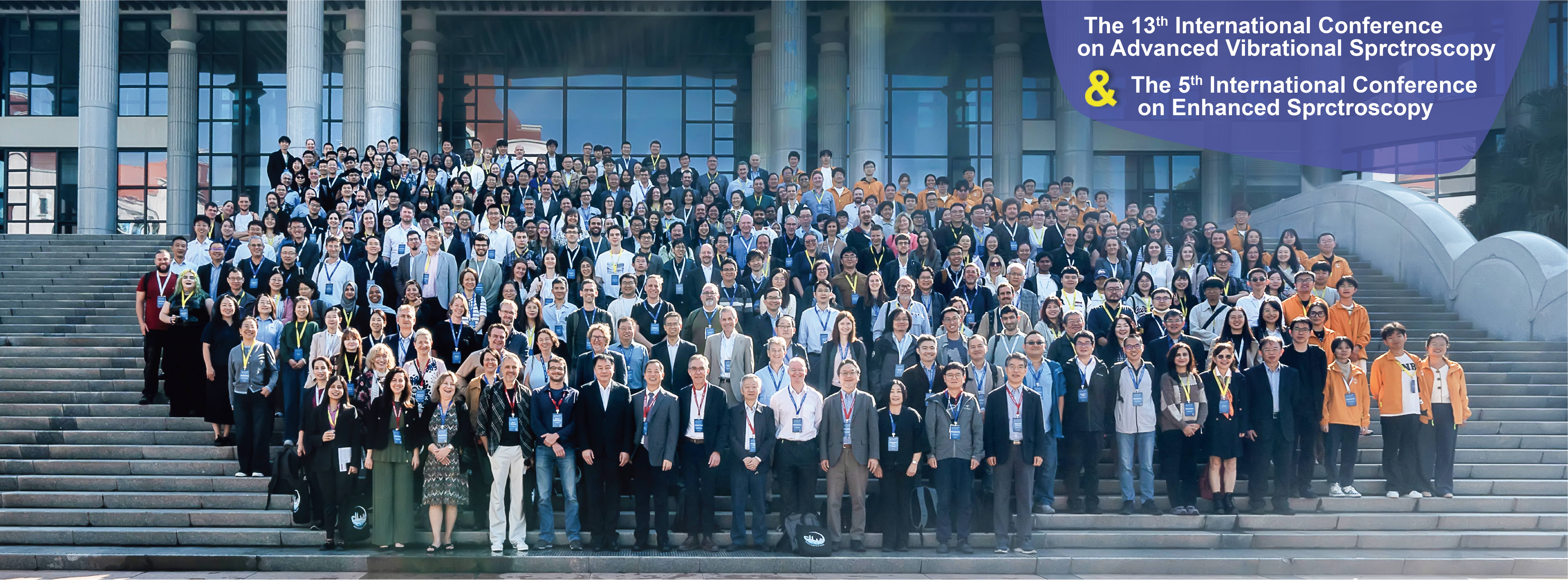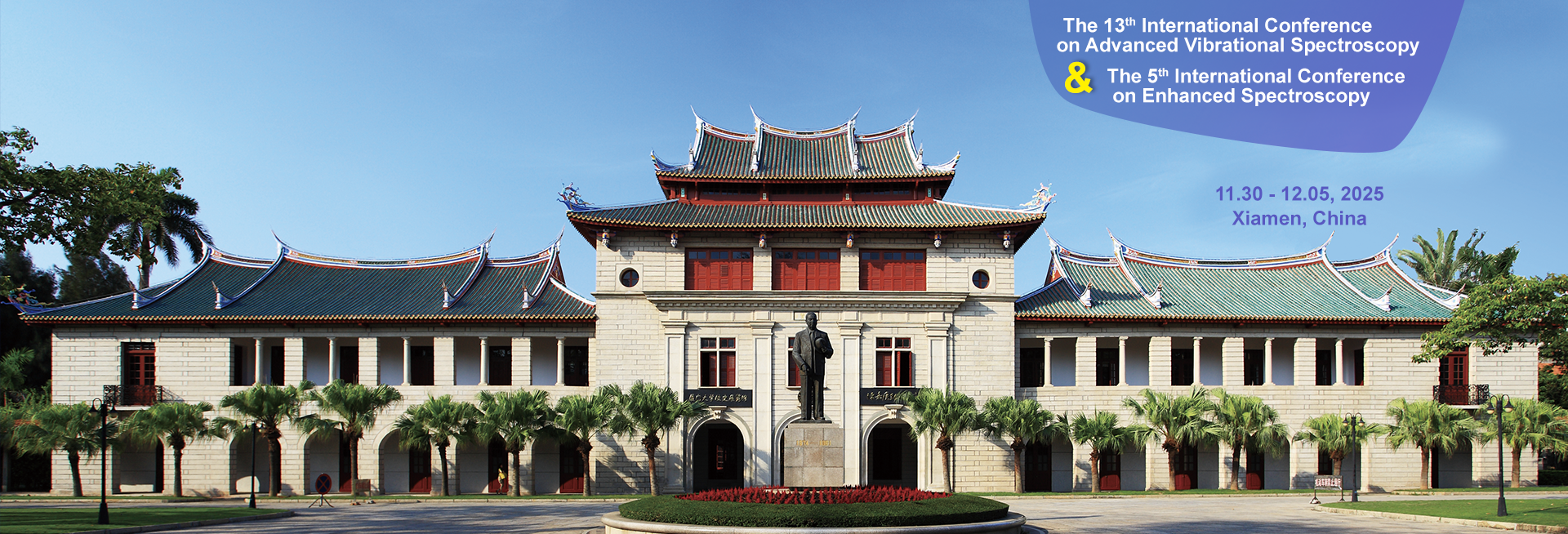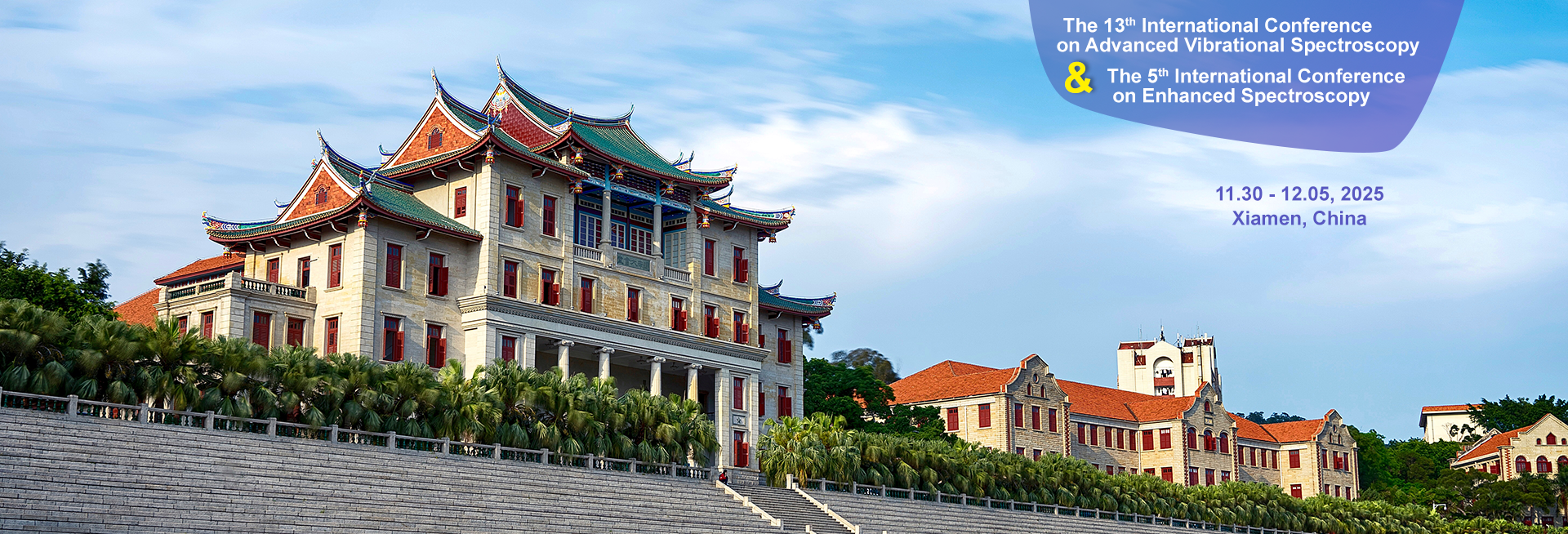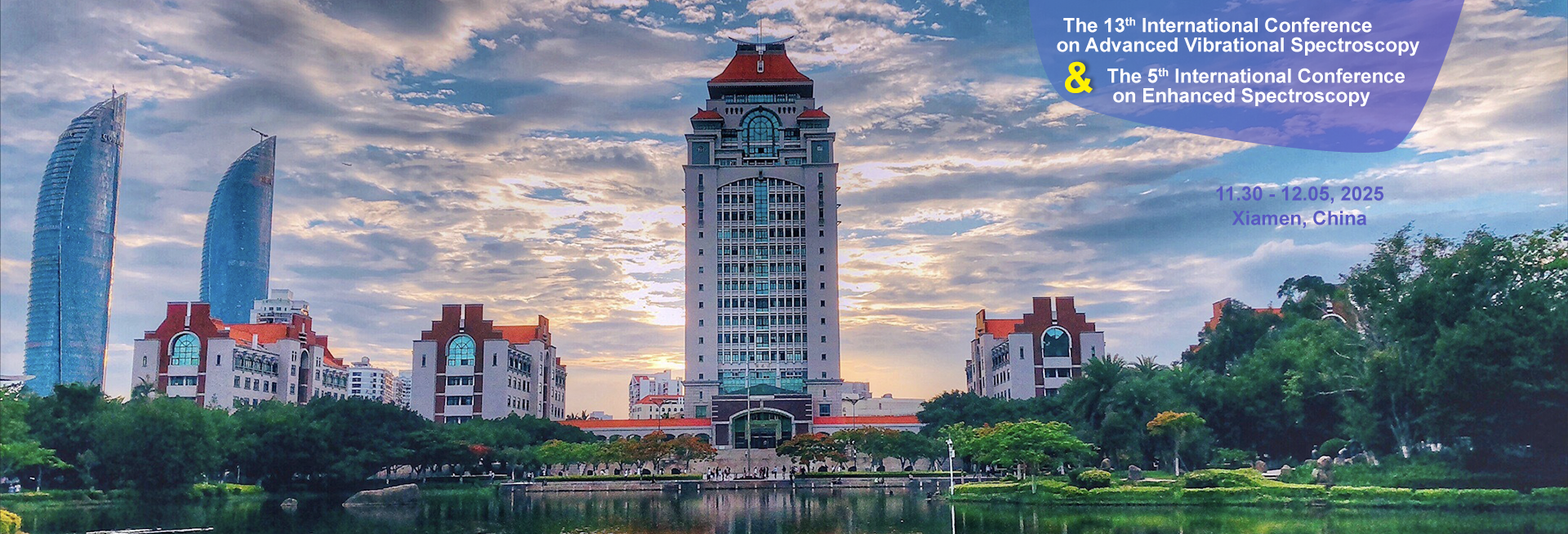Home
>Program
>Plenary Speakers
Plenary Speakers
Prof. Hatice Altug
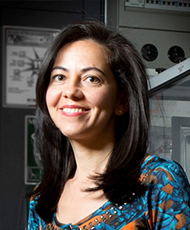
Prof. Hatice Altug is professor at Ecole Polytechnique since 2013 and the head of BioNanoPhotonic Systems (BIOS) Laboratory at School of Engineering. Prior to EPFL, she was professor at Boston University, Electrical and Computer Engineering Department from 2007 to 2013. She received her Ph.D. in Applied Physics from Stanford University (U.S.) in 2007 and her B.S. in Physics from Bilkent University (Turkey) in 2000. Her research is focused in the application of nanophotonics for life sciences and biomedical fields with the development of next-generation biosensing, spectroscopy and bioimaging systems. Her laboratory has world-leading expertise to engineer plasmonic and all-dielectric based metasurfaces and nanoantennas with operation wavelengths spanning from visible to Infrared to leverage powerful optical detection techniques including vibrational spectroscopy (Surface enhanced infrared absorption - SEIRA & surface enhanced Raman scattering- SERS, Vibrational Circular Dichroism) and digital biosensing. They innovatively combine nanophotonics with novel nanofabrication approaches, microfluidics, surface chemistry and AI techniques to achieved lab-on-chip device integration and enhanced device performance. Prof. Altug received numerous awards including European Physical Society Emmy Noether Distinction, Optical Society of America Adolph Lomb Medal, U.S. Presidential Early Career Award for Scientists and Engineers, IEEE Photonics Society Young Investigator Award and Koc University Science Medal. She received European Commission ERC Consolidator and Proof of Concept Grants, U.S. Office of Naval Research Young Investigator Award, U.S. National Science Foundation CAREER Award, Massachusetts Life Science Center New Investigator Award. In 2011, she has been named to Popular Science Magazine’s "Brilliant 10" list. She is a fellow of Optical Society of America and senior member of SPIE.
Prof. Malgorzata Baranska
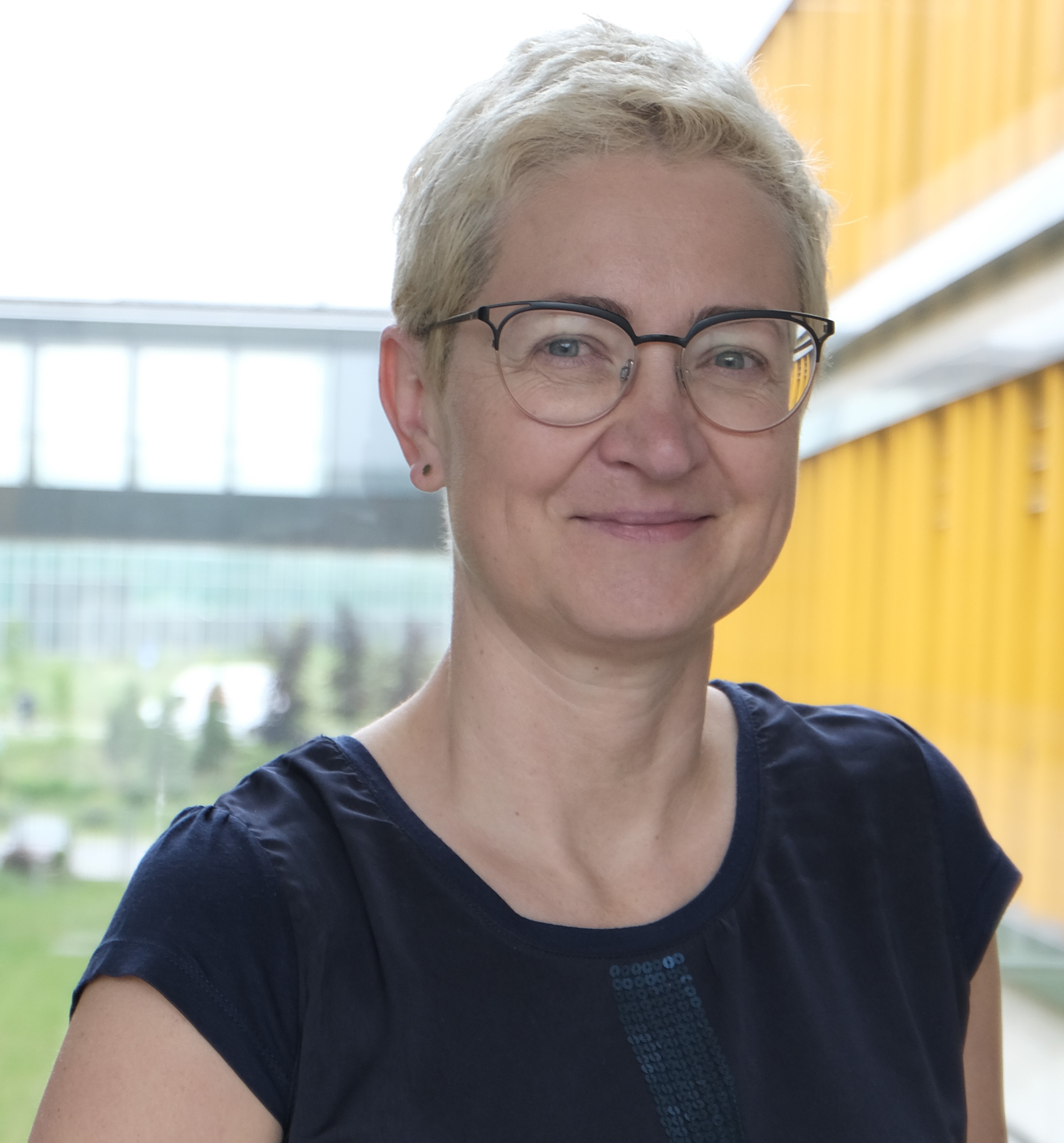
Professor Malgorzata Baranska is a graduate (1992) and PhD (1999 of the Jagiellonian University, Krakow, Poland, where she also obtained her habilitation (2007) and the title of full professor (2013). Since 1998, she has been employed at the Faculty of Chemistry of Jagiellonian University, where she serves as the Head of the Raman Imaging Group and the Department of Chemical Physics.
She specializes in Raman imaging and the analysis of biological and medical samples, including research related to the development and treatment of lifestyle diseases. Her current interest focuses on the development of nonlinear optical Raman imaging techniques (SRS, CARS) for ultrafast tracking of biochemical changes in cells and tissues, including studies of the kinetics of drug uptake and metabolism in cells. Labelled imaging and data fusion are a new approach for sensitive and selective subcellular analysis. She also studies the optical activity of biologically important compounds using chiraloptic techniques (ROA, ECD), including the mechanism of Raman signal amplification.
Prof. Hyeonsik Cheong
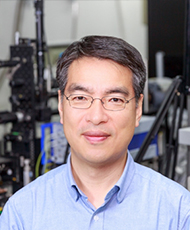
Hyeonsik Cheong is a professor of physics at Sogang University. He received his B.S. degree in physics from Seoul National University and A.M. and Ph.D. in physics from Harvard University. After working at Harvard as a postdoctoral fellow and at National Renewable Energy Laboratory in Golden, Colorado as a postdoc and then as a senior scientist, he joined the Department of Physics at Sogang University in 1999. At Sogang University, he has served in various administrative positions, including Director of International and Public Relations, Chair of the Department of Physics, Vice President for Budget and Planning, Vice President of Research and Director of Sogang University Research & Business Development Foundation, and Dean of Graduate School. He served as the president of Korean Graphene Society from 2015 to 2016 and as the chair of the Division of Applied Physics of the Korean Physical Society from 2016 to 2020. He is currently the Chair of the International Advisory Board of Recent Progress in Graphene and 2D Materials Research (RPGR) Conference. He won the Korea Science Award (presidential award) in 2022 and is a fellow of the Korean Academy of Science and Technology. His research interest includes spectroscopic studies of graphene and 2-dimensional materials, semiconductor nanostructures, and solar cell materials.
Prof. Rainer Hillenbrand
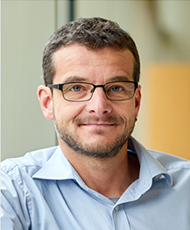
Rainer Hillenbrand is an Ikerbasque Research Professor and Nanooptics Group Leader at the nanoscience research center CIC nanoGUNE in San Sebastian (Basque Country, Spain), and a Joint Professor at the University of the Basque Country. He is also co-founder of the company neaspec GmbH (Germany), now part of attocube systems AG (Germany), which develops and manufactures near-field optical microscopes. From 1998 to 2007 he worked at the Max Planck Institute of Biochemisty (Martinsried, Germany), where he led the Nano-Photonics Research Group from 2003 to 2007. He obtained his PhD degree in physics from the Technical University of Munich in 2001.
Hillenbrand’s research activities include the development of scattering-type scanning near-field optical microscopy (s-SNOM), nanoscale Fourier transform infrared (nano-FTIR) spectroscopy and related techniques, as well as their application in nanophotonics and materials sciences. He has published more than 180 peer-reviewed articles with over 28000 citations and an h-index 89 (Google Scholar). In 2014 he received the Ludwig-Genzel-Price “for the design and development of infrared near-field spectroscopy and the application of the novel spectroscopy method in different fields of natural sciences”.
Hillenbrand’s research activities include the development of scattering-type scanning near-field optical microscopy (s-SNOM), nanoscale Fourier transform infrared (nano-FTIR) spectroscopy and related techniques, as well as their application in nanophotonics and materials sciences. He has published more than 180 peer-reviewed articles with over 28000 citations and an h-index 89 (Google Scholar). In 2014 he received the Ludwig-Genzel-Price “for the design and development of infrared near-field spectroscopy and the application of the novel spectroscopy method in different fields of natural sciences”.
Prof. Yi Luo
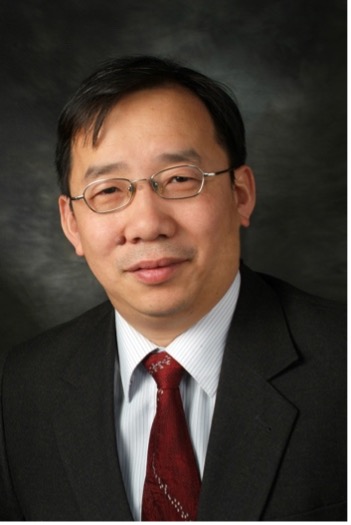
Yi Luo earned his Bachelor's degree in Engineering from HuaZhong University of Science and Technology (1985) and a Ph.D. in Computational Physics from Linköping University, Sweden (1996). He started as an Assistant Professor at Stockholm University (1997–2000), pioneering research in theoretical molecular electronics and X-ray spectroscopies. Later, he joined the Royal Institute of Technology (KTH) in Sweden as an Associate Professor and Full Professor while leading interdisciplinary research. Since 2010, he has been at the University of Science and Technology of China (USTC), where he holds the titles of Distinguished Chair Professor and Yan Jici Chair Professor. As Director of the Hefei National Research Center for Physical Sciences at Microscale and Executive Director of USTC's School of Emerging Technology, he oversees cutting-edge research in quantum information science, nanotechnology, biotechnology, and cognitive science. As a Principal Investigator, he has led several high-profile research projects funded by the National Natural Science Foundation of China (NSFC), the Ministry of Science and Technology (MOST), and the Chinese Academy of Sciences (CAS), contributing to advancements in ultrafast spectroscopy, ultra-high-resolution chemical imaging of single molecules, and AI-driven robotic chemistry. With over 500 co-authored publications, his work has been honored with the Göran Gustafsson Prize in Chemistry by the Royal Swedish Academy of Sciences. He currently serves as the Editor of Chemical Physics and the Executive Editor of Chinese Journal of Chemical Physics.
Prof. Boris Mizaikoff
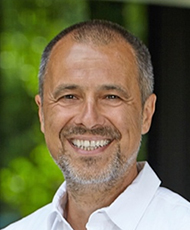
Dr. Boris Mizaikoff is a Chaired Professor and Director of the Institute of Analytical and Bioanalytical Chemistry @ Ulm University (Germany) with prior appointments at the Vienna University of Technology (Austria) and at the Georgia Institute of Technology (USA). Since 2021, he is also a Director at the Hahn-Schickard Institute for Microanalysis Systems in Ulm (Germany). His research interests focus on optical sensors, biosensors, and biomimetic sensors in the mid-infrared spectral range, system miniaturization and integration based on micro- and nanofabrication, multifunctional (nano)analytical platforms, development of biomolecular/biomimetic molecular recognition architectures, multivariate data evaluation, and applications in environmental analytics, process analysis, and biomedical/clinical diagnostics. He is (co)author of 470+ peer-reviewed publications and 21 patents.
Prof. Juergen Popp
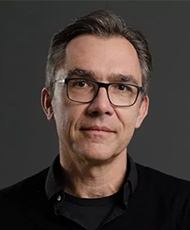
Juergen Popp studied chemistry at the universities of Erlangen and Würzburg, Germany. After his PhD in Chemistry he joined Yale University for postdoctoral work. He subsequently returned to Würzburg University where he finished his habilitation in 2002. Since 2002 Juergen Popp holds a chair for Physical Chemistry at the Friedrich-Schiller University Jena, Germany. Since 2006 he is also the scientific director of the Leibniz Institute of Photonic Technology, Jena. Juergen Popp is a world leading expert in Biophotonic / optical health technology research covering the complete range from photonic basic research towards translation into clinically applicable methods. Jürgen Popp is author of >1.100 papers in peer-reviewed journals which have been cited >40.000 times, which results in an h-index of 83. In addition Popp’s innovations have led to 18 patents. He has given more than 200 invited talks on national and international conferences (among them more than 60 keynote/plenary lectures). In addition, he organized numerous conferences and workshops (e.g. the world largest conference on Raman spectroscopy ICORS in 2014). He is Editor-in-Chief of the Journal of Biophotonics and associate editor of Analytical Chemistry. Furthermore, he is a leading partner in various national and international projects in cooperation with academic, clinical and industrial partners. Very recently under the leadership of Juergen Popp the “Leibniz Center for Photonics in Infection Research (LPI)” has been put by the German government as one of three projects on the national roadmap for research infrastructures. The infrastructure committed to research transfer will receive three-digit million funding. Juergen Popp is member of the Photonics 21 Executive Board and has been frequently asked as a contact person for media and politics. Professor Popp has received numerous awards for his research, including the prestigious Pittsburgh Spectroscopy Award in 2016. In 2023, Jürgen Popp received an honorary doctorate from the University at Albany - State University of New York (USA) and the Charles Mann Award from the Federation of Analytical Chemistry and Spectroscopy Societies (FACSS).
Prof. Tahei Tahara
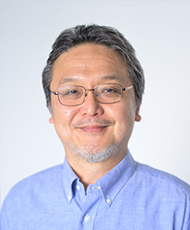
Tahei Tahara obtained his Ph.D. degree from the University of Tokyo in 1989. He became a research associate of the University of Tokyo in 1989 and then moved to the newly founded Kanagawa Academy of Science and Technology (KAST) as a research associate in 1990. In 1995, he joined the Institute for Molecular Science (IMS) as an associate professor and started his own research group. He moved to RIKEN as Chief Scientist in 2001 and has been the Director of Molecular Spectroscopy Laboratory since then.
His research interests are ultrafast spectroscopy, interface-selective nonlinear spectroscopy, and single-molecule spectroscopy. He has obtained a number of awards including the CSJ Award (2025), Shimadzu Award (2021), Mizushima-Raman Lectureship (2019), TRVS “Lifetime Achievement” Award (2019), JSMS Distinguished Scientist Award (2017), The Spectroscopic Society of Japan Award (2017), The Commendation for Science and Technology by MEXT (2017), CSJ Award for Creative Work (2012), The JSPS Prize (2006), IBM Japan Science Prize (2004), Morino Science Award (2000).
He served as President of the Japan Society of Molecular Science (2018-2020). He also served as Chair of the 16th International Conference on Time-Resolved Spectroscopy (2013), Co-General Chair of the 22nd International Conference on Ultrafast Phenomena (2020), and Chair of the 8th Asian Spectroscopic Conference (2023). He is currently a member of the Editorial Advisory Board / Advisory Board / Editorial Board of J. Chem. Phys., J. Phys. Chem. Lett., J. Phys. Chem. A/B/C, Chemical Science, Chemical Physics.
His research interests are ultrafast spectroscopy, interface-selective nonlinear spectroscopy, and single-molecule spectroscopy. He has obtained a number of awards including the CSJ Award (2025), Shimadzu Award (2021), Mizushima-Raman Lectureship (2019), TRVS “Lifetime Achievement” Award (2019), JSMS Distinguished Scientist Award (2017), The Spectroscopic Society of Japan Award (2017), The Commendation for Science and Technology by MEXT (2017), CSJ Award for Creative Work (2012), The JSPS Prize (2006), IBM Japan Science Prize (2004), Morino Science Award (2000).
He served as President of the Japan Society of Molecular Science (2018-2020). He also served as Chair of the 16th International Conference on Time-Resolved Spectroscopy (2013), Co-General Chair of the 22nd International Conference on Ultrafast Phenomena (2020), and Chair of the 8th Asian Spectroscopic Conference (2023). He is currently a member of the Editorial Advisory Board / Advisory Board / Editorial Board of J. Chem. Phys., J. Phys. Chem. Lett., J. Phys. Chem. A/B/C, Chemical Science, Chemical Physics.
Prof. Zhong-Qun Tian
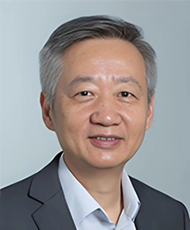
Zhong-Qun Tian received his B.S. in Chemistry from Xiamen University, China, in 1982 and his Ph.D. in Chemistry from the University of Southampton, UK, under Martin Fleischmann (FRS), in 1987. He then returned to Xiamen University, where he has been working ever since. He was appointed a full professor in 1992 and was elected a Member of the Chinese Academy of Sciences in 2005. Tian has been a Fellow of the Royal Society of Chemistry (2005), the International Society of Electrochemistry (2010), and the World Academy of Sciences (2014).
He served as President of the International Society of Electrochemistry (ISE) from 2019 to 2020 and was Chairman of the Chinese Light Scattering Committee of the Chinese Physical Society (2004-2006). He has also served twice on the Steering Committee of the International Conference on Raman Spectroscopy (ICORS, 2004-2010, 2018-present). Tian is a permanent member of the Steering Committee of the Asian Spectroscopy Conference. He was an associate editor for Chem. Soc. Rev. (2012-2024) and J. Raman Spectrosc. (2009-2021).
Currently, he is a member of the Academic Committee of the Chinese Academy of Sciences and serves on the advisory/editorial boards of more than 15 international journals. Over the course of his career, he has received numerous awards from China, UK, USA, France, Japan, ISE, and ICORS, including the Raman Lifetime Award. His main research interests include SERS/SHINERS, spectroelectrochemistry, plasmonics, and molecular assembly. He has published more than 700 peer-reviewed papers (over 450 of which focus on SERS/SHINERS), with over 56,000 citations and an H-index of 102.
He served as President of the International Society of Electrochemistry (ISE) from 2019 to 2020 and was Chairman of the Chinese Light Scattering Committee of the Chinese Physical Society (2004-2006). He has also served twice on the Steering Committee of the International Conference on Raman Spectroscopy (ICORS, 2004-2010, 2018-present). Tian is a permanent member of the Steering Committee of the Asian Spectroscopy Conference. He was an associate editor for Chem. Soc. Rev. (2012-2024) and J. Raman Spectrosc. (2009-2021).
Currently, he is a member of the Academic Committee of the Chinese Academy of Sciences and serves on the advisory/editorial boards of more than 15 international journals. Over the course of his career, he has received numerous awards from China, UK, USA, France, Japan, ISE, and ICORS, including the Raman Lifetime Award. His main research interests include SERS/SHINERS, spectroelectrochemistry, plasmonics, and molecular assembly. He has published more than 700 peer-reviewed papers (over 450 of which focus on SERS/SHINERS), with over 56,000 citations and an H-index of 102.
Prof. Xiaoliang Sunney Xie
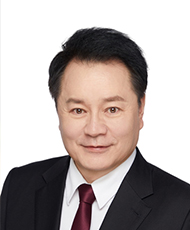
Xiaoliang Sunney Xie is the Director of Changping Laboratory, the Lee Shau-kee Professor and Dean of Faculty of Sciences at Peking University. He received his B.Sc. in Chemistry from Peking University in 1984, and Ph.D. in Physical Chemistry from University of California at San Diego in 1990. He became the first tenured professor in 1998 and the first endowed Professor in 2009 at Harvard University among Chinese scholars since China’s reform and opening up. He relocated to Peking University in 2018.
Xie has been a pioneer of single-molecule biophysical chemistry, coherent Raman scattering microscopy and single-cell genomics. The single-cell whole genome amplification methods that his group invented has to date benefited over 8,000 families with monogenic diseases by successfully preventing the passing of disease-causing mutations to their offspring. In fighting against the COVID-19 pandemic, Xie’s team has identified a broad-spectrum neutralizing antibody against all SARS-CoV-2 variants, which has been licensed to Sinovac and is undergoing clinical trials.
Xie received numerous international awards, most notably Tengchong Science Award (2024), Zhong Guan Cun Outstanding Contribution Price (2022), Qiu Shi Science and Technology Prize (2017), Albany Prize in Medicine and Biomedical Research (2015), Peter Debye Award in Physical Chemistry of American Chemical Society (2015) and Founders Award of Biophysical Society (2012).
Xie has been a pioneer of single-molecule biophysical chemistry, coherent Raman scattering microscopy and single-cell genomics. The single-cell whole genome amplification methods that his group invented has to date benefited over 8,000 families with monogenic diseases by successfully preventing the passing of disease-causing mutations to their offspring. In fighting against the COVID-19 pandemic, Xie’s team has identified a broad-spectrum neutralizing antibody against all SARS-CoV-2 variants, which has been licensed to Sinovac and is undergoing clinical trials.
Xie received numerous international awards, most notably Tengchong Science Award (2024), Zhong Guan Cun Outstanding Contribution Price (2022), Qiu Shi Science and Technology Prize (2017), Albany Prize in Medicine and Biomedical Research (2015), Peter Debye Award in Physical Chemistry of American Chemical Society (2015) and Founders Award of Biophysical Society (2012).

